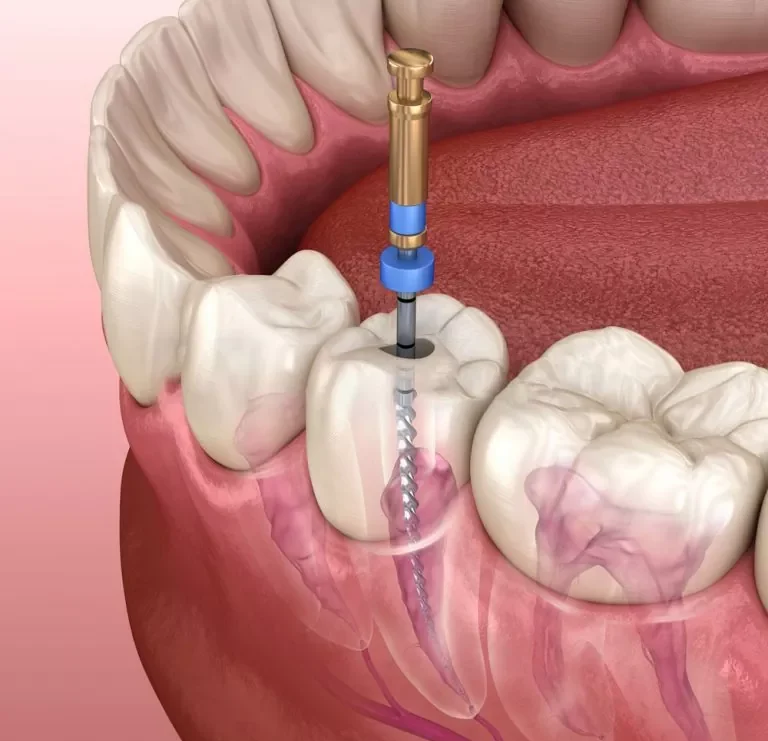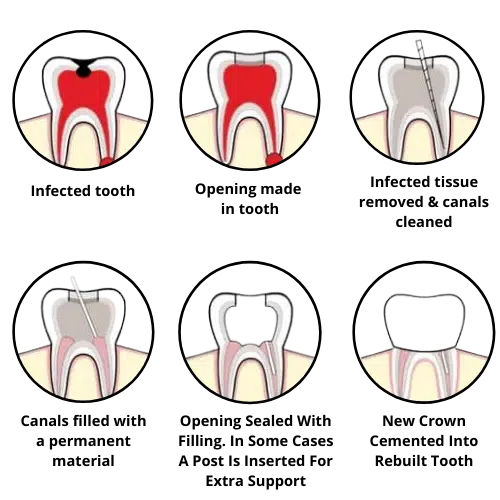Frequently Asked Questions
What is a root canal?
A root canal is a dental procedure that removes the infected tissue, nerve, and bacteria from inside the root canals.
Is root canal treatment painful?
Advancement in Dentistry and local anesthesia has made root canal treatment painless. Any discomfort experienced after the procedure can be managed with over-the-counter pain medications.
How long does a root canal take?
A root canal procedure depends on the location and complexity of the affected tooth. A root canal can be completed between 60 minutes to 2 hours.
What happens after a root canal?
After a root canal, you may experience mild discomfort and bruising in the gum where anesthesia was administered. Take some over-the-counter pain medications for any discomfort. Avoid biting any sticky or hard food to prevent the temporary filling from being broken or pulled out of the root canal treated tooth.
What are the alternatives to a root canal?
The only alternative to a root canal is extraction of the tooth to get rid of the infection.
Do I need a crown after root canal?
After a root canal, it is recommended that a crown be placed on the tooth to protect and seal the tooth from bacteria that can re-infect the tooth.
How long after root canal can I eat?
After a root canal, you can eat immediately after the numbness wears off to avoid biting your cheek or tongue.
How much does a root canal treatment cost, and does insurance cover it?
Costs vary depending on factors such as the tooth’s location and the extent of damage. When you schedule an appointment, Perfect Smile Dental Group will review your insurance or other payment methods for the procedure.
How long will the results of a root canal treatment last?
With proper oral hygiene and regular dental care, the results of a root canal procedure can last a lifetime. However, it’s essential to maintain good oral habits, including brushing, flossing, and attending routine dental check-ups, to ensure the longevity of your restored tooth.
At Perfect Smile Dental Group, we’re committed to providing personalized care and exceptional results for all your dental needs, including root canal treatments. Contact us today to schedule a consultation and take the first step towards a healthier, pain-free smile.






